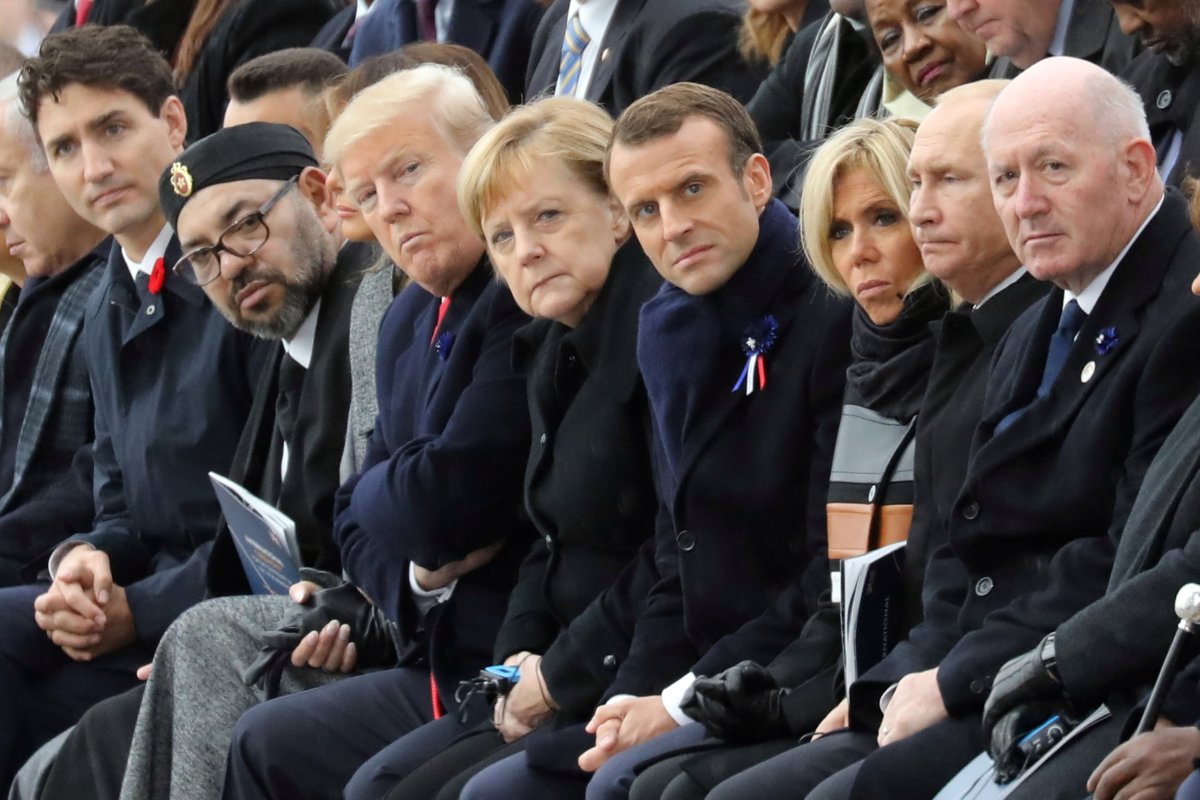Without consulting a dictionary, most people might well put the terms “patriotism” and “nationalism” to identical use. Perhaps they would do so even after reviewing a dictionary.

Nationalism, very loosely defined, places loyalty to one’s own nation-state above all others. Dangerous?
Consider O Canada: “O Canada, our home and native land. True patriot love in all of us (thy sons) command.” There’s little doubt about the meaning of these lines.
The anthem continues: “From far and wide, O Canada, we stand on guard for thee” — an expression of devotion, patriotism and ultimate personal national sacrifice.
In today’s prickly world, though, to consider oneself a Canadian nationalist may lead to accusations of being deeply exclusionary and lacking appreciation or willingness to accept anything short of Canadian culture.
Take, for instance, last year’s Conservative Party of Canada leadership race. A Canadian values test for immigrants was proposed, debated and later supported as well as dismissed. Those who supported the test were accused of being un-Canadian and unappreciative of the multicultural nature of Canada.
Yet, closely related democracies like the United Kingdom and Australia are also engaged in a values test debate. Emigrate to the U.K. and you’ll be subjected to the Britishness test, which critics argued earlier this year ought to be more, well, British.
Australia’s former prime minister Malcolm Turnbull and former minister of citizenship and multicultural affairs Alan Tudge, speaking to the Australia-U.K. Leadership Forum, explained that an Australian values test would, in fact, serve to protect the nation’s “extraordinarily successful” multicultural society, adding that such a test would defend against “segregation.”

Get breaking National news
Populism, globalism, nationalism and patriotism are all terms that have recently been used by politicians to make their case for preferred policies.
WATCH: Macron rebukes nationalism calling it “a betrayal of patriotism”

French President Emmanuel Macron appeared to challenge U.S. President Donald Trump and his “America First” policy last Sunday in a speech in Paris as the world marked a century since the end of the First World War.
“Patriotism is the exact opposite of nationalism,” Macron said in his speech at the Arc de Triomphe. “Nationalism is the betrayal of patriotism.”
Macron is supported by Canada’s Prime Minister Justin Trudeau and Germany’s Chancellor Angela Merkel.
The French president appeared to raise the stakes as he also spoke of the need for a European army in order for the continent to defend itself from the United States, among other countries.
- Quebec premier calls on Bloc Québécois to help topple Trudeau government
- Americans can now renew passports online. Canadians are still waiting
- Pablo Rodriguez quits Trudeau cabinet to seek Quebec Liberal leadership
- ‘Deeply ashamed’: Canadian Medical Association apologizes for harms to Indigenous peoples
The question, which begs an answer, is whether the people living in countries where elected officials pursue a globalist view actually share that vision.
As conservatism and populism grow in Europe, Macron and Merkel (still, arguably, the unofficial leader of the EU), are facing strong public rebuke on the home front. A September IFOP poll for Paris Match magazine showed only 31 per cent of French voters approved of their president’s performance, while 78 per cent said he was out of touch with the worries of the French people. It was the youngest voting demographic, those 18-24 years of age, who rated Macron worst, with 72 per cent disapproving of his performance.
Meanwhile, German support for Merkel’s coalition government dropped to 29 per cent last month.
Even a cursory review of headlines reveals the tensions roiling Britain over a wobbly Brexit plan stewarded by Prime Minister Theresa May, who faces an internal rebellion from conservatives. She is currently being described by many whose support she craves as a sellout to the interests of the EU at worst and someone who has compromised the expectations of Britons after the leave-the-EU plebiscite at best.
No one can know how Brexit will eventually play out. Take note, though, that concern has been expressed about the possible renewal of post-Brexit sectarian strife in Northern Ireland. This comes after research by a partnership of Belfast universities and human rights experts.
Unhappiness with the European Union appears to be growing. A poll released Thursday shows 60 per cent of Italians think the EU is bad for them, according to Express.
Even setting aside Brexit doesn’t improve the big picture. Next month, 188 nations, including Canada, will ratify a United Nations compact on orderly international migration. The United States, Australia, Poland, Hungary, Austria and now Bulgaria have either decided to withdraw from the compact or are in the process of evaluating whether they should do so, expressing concern over a loss of border sovereignty.
The issues of nationalism and patriotism roll along, as a stream of headlines attest. Brazil recently elected Jair Bolsonaro as the country’s president, a man said to be cut from the same cloth as Trump.
The issue may not be so much about individual words, dictionaries and approved definitions, but rather the growing restlessness in countries around the world. Now that appears to be truly global.
Roy Green is the host of the Roy Green Show on the Global News Radio network.












Comments